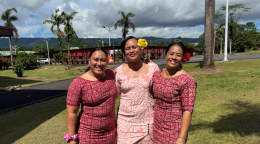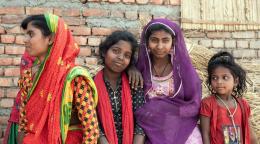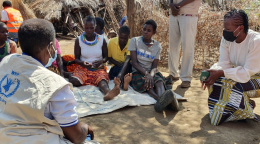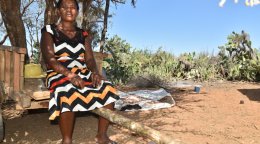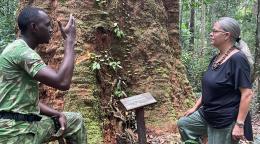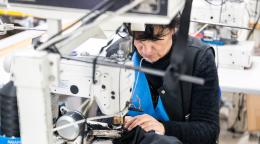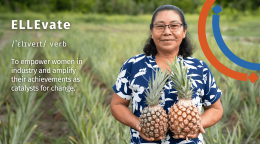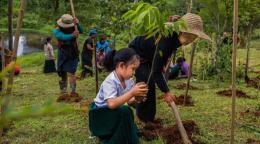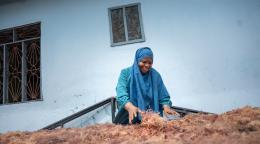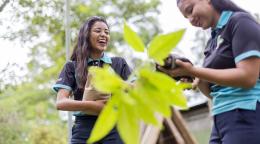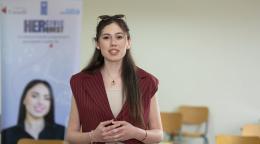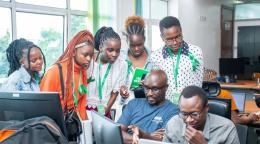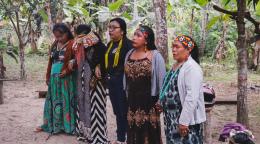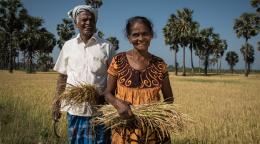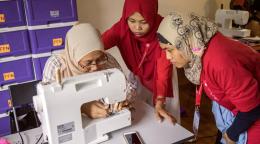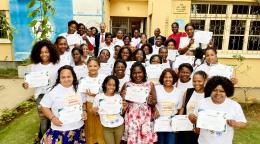How innovative cheesemaking empowered one Georgian woman’s life
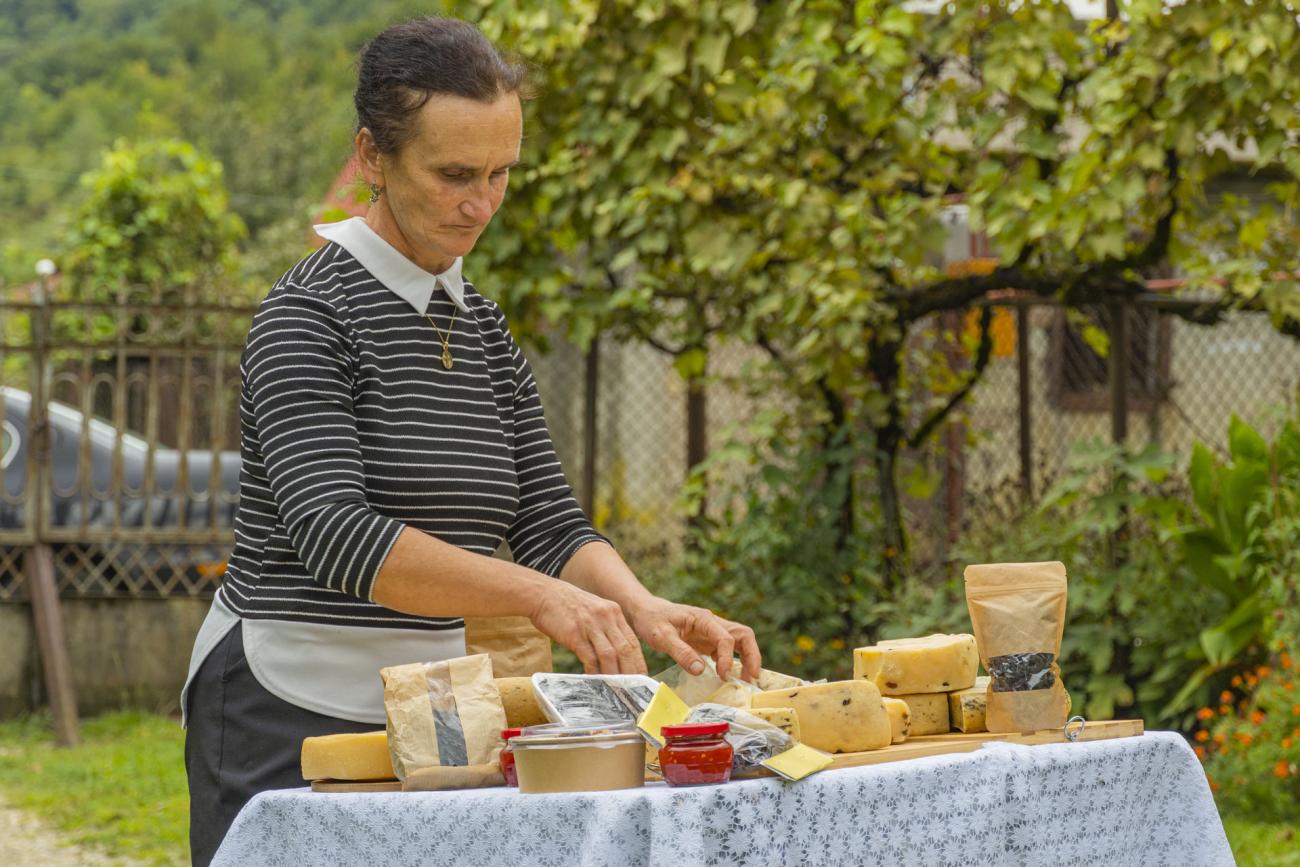
For Nino Kavtaradze, producing dried fruits, jams and distinctive Georgian cheeses is more than a livelhood. The income from her skills and decades of experience has made the difference between sickness and health.
"Nearly 20 years ago," she explains, “I was diagnosed with a severe disease – cancer. The sales of dried fruits and tklapi [sheets of dried fruit puree which roll up like leather] was one of the key income sources which supported my health, covering my medical fees.”
She spent years undergoing multiple rounds of chemotherapy. All the while, she says that she concentrated on running her home-based business in the country’s northwestern mountains to keep her mind busy on the day-to-day.
This focus and honing of her expertise allowed her to play a key role as a Lead Farmer in a project led by the UN country team in Georgia which aims to improve the resilience and economic empowerment of smallholder women dairy farmers.
The journey started when she met a fellow cheese producer who was running a Farmer Field School, as part of an initiative implemented by the Food and Agriculture Organization of the United Nations (FAO) in partnership with the United Nations Entity for Gender Equality and the Empowerment of Women (UN Women) and funded by the Swiss Agency for Development and Cooperation. Through the school, farmers had the opportunity to learn from each other and from experts such as FAO food technologists, agronomists and veterinarians.
When the trainer asked Nino if she would be interested in doing the same - and find 15 women to take part - Nino rose to the challenge.
The determination that had helped her overcome cancer kicked in and she did more than that. Nino found 30 local women dairy farmers who were interested in participating. The school covers a range of subjects from food safety, animal care and vaccinations to the production of new types of dairy and processed fruit and vegetables, as well as a better understanding of business management and gender equality.
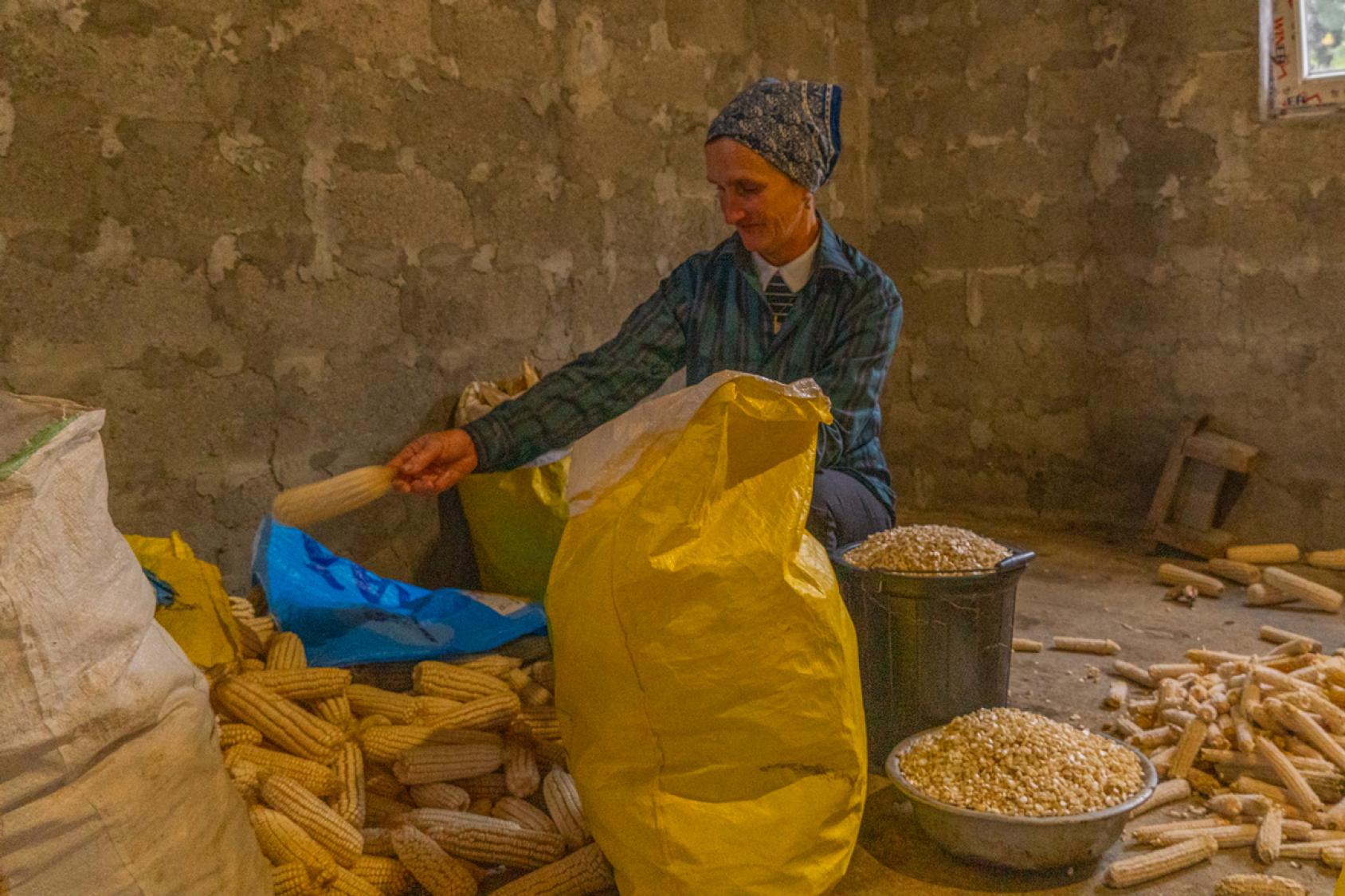
Based on the knowledge shared by FAO, the women exchanged experiences on animal management, milk and dairy production, hygiene and modern food safety practices.
Even though Nino has worked as a dairy farmer for 30 years, she still gained useful new knowledge from the trainings. The basic equipment provided to her by FAO has also boosted production, safety and competitiveness. Nino is especially happy with the FAO-provided grinding mill, which saves her money as she no longer has to buy processed animal feed.
“We will not have to buy corn since we have corn fields, and I will somehow manage to purchase wheat and barley. When we grind the grains, feeding our livestock will not be as costly and our profits will increase.”
FAO also provided Nino with dairy production equipment such as a milk pasteurizer, a vacuum sealer and specialized containers. With these, she has elevated her cheese production, offering her own brand of Ninoseuli (which translates as “Ninoian”) innovative cheese varieties.
“I wanted my cheeses to stand out,” Nino highlights, “This is why I added dried fruits to my products and started creating cheese with dried figs, plums and kiwi.”
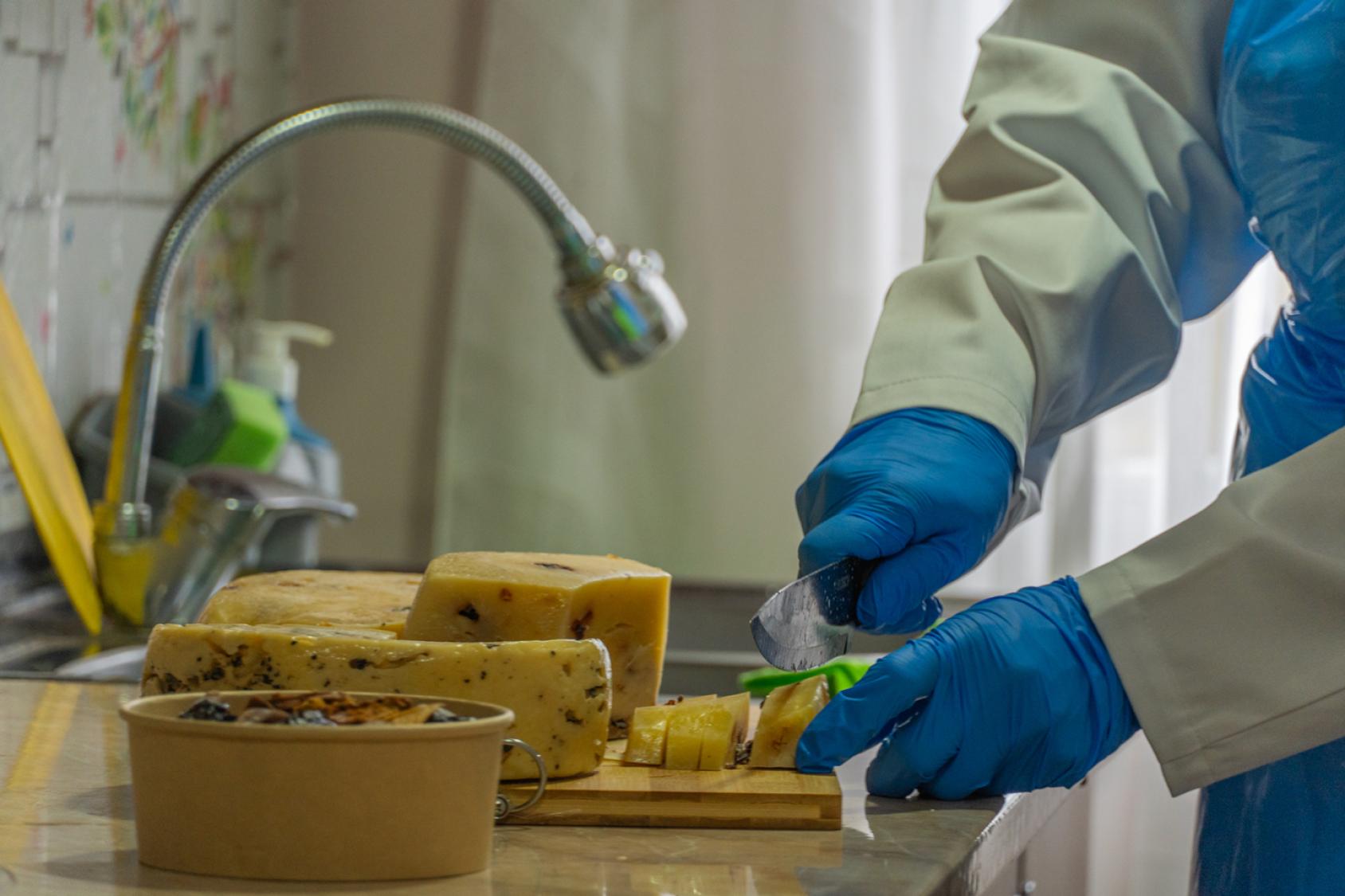
Another “Ninoian” experiment was making sweet jams with spicy peppers.
Nino has taken her cheeses and pepper jams to various exhibitions, where consumers have shown great interest in these new products.
“The pepper jam and cheese go well with each other,” says Nino as she recalls her experience at the "Unique Georgian Taste", an agromarket, which FAO organizes in Tbilisi and other cities in Georgia through assistance from the European Union and Sweden, supporting producers of niche and natural products.
Once Nino’s customers tried the combination, they liked it and this helped her sell cheese in greater quantities. "Those who bought the pepper jam once, returned to buy more,” she exclaims.
By partnering with Nino and her fellow Lead Farmers, FAO has helped more than 600 women dairy farmers to produce a range of cheese varieties, from caciotta to halloumi. Many of them have started producing these cheeses commercially.
“When a person sets a goal,” says Nino, “they must try their best to achieve it. I did not give up for a single second or think about dying when I had cancer. I am here now because I battled my way through with work, determination and motivation.”
With this attitude, Nino continues producing unique and ever more popular “Ninoian” products for the Georgian market and inspiring more farmers to follow her example.
This article was first published here. For more information about the UN's work in Georgia, visit georgia.un.org.

